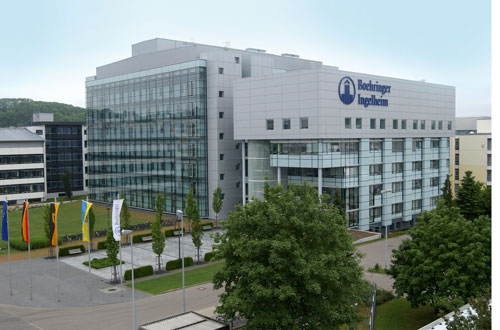
Boehringer Ingelheim has added another drug candidate to its pipeline for non-alcoholic steatohepatitis (NASH) via a deal with gene-silencing specialist Dicerna.
The two companies aren’t revealing the gene involved in the collaboration, but said the programme will investigate “a new therapeutic approach that enables addressing previously inaccessible drug targets to protect and restore liver functionality in NASH”.
Dicerna is a US specialist in RNA interference (RNAi), a technique that switches off messenger RNA associated with specific genes and prevents them from generating their corresponding proteins. It stands to receive $201m in upfront and milestone payments from the privately-held German pharma group, plus royalties on any eventual sales.
NASH is a hot topic in pharma development at the moment, with a host of companies vying to bring forward new treatments for the disease, which is viewed as an emerging health crisis – and an untapped pharma market. It is characterised by a build-up of fat that can lead to fibrosis, cirrhosis and – in some patients – the need for a liver transplant.
Rates are rising thanks to an increase in obesity and diabetes, which increase the risk of developing the disease, and with improvements in the treatment of viral hepatitis is expected to be the leading cause of liver transplants by 2020. Some predictions put the market potential at $20bn to $35bn a year.
Like many big pharma players Boehringer has been on the hunt for licensing opportunities in NASH, and this is not its first deal as the company already has a NASH candidate in phase II clinical testing which it acquired from Pharmaxis in 2015. That drug – BI 1467335 (formerly PXS-4728a) – is an oral inhibitor of a target called AOC3 and is thought to work by blocking white blood cells from entering liver tissue and contributing to inflammatory processes in NASH.
Other key players in NASH include Gilead Sciences, an early pioneer in the disease which has been snapping up programmes right and left, including phase II candidate GS 0976, an ACC inhibitor acquired from Nimbus in a $1.2bn deal last year, after its lead inhouse drug simtuzumab failed to show efficacy in trials.
Allergan bought into the space via two separate deals for Tobira and Akarna in 2016, and other pharma groups eyeing the opportunity include Bristol-Myers Squibb, Johnson & Johnson, Merck & Co and Novartis, along with a host of smaller biopharma firms.
“Our research team is diligently working to discover effective new therapies for NASH and other chronic liver diseases, which is a priority area for us,” commented Boehringer’s head of discovery research Clive Wood.
“This partnership complements our existing research efforts and expertise and offers distinct advantages in developing exciting new therapy options.”




